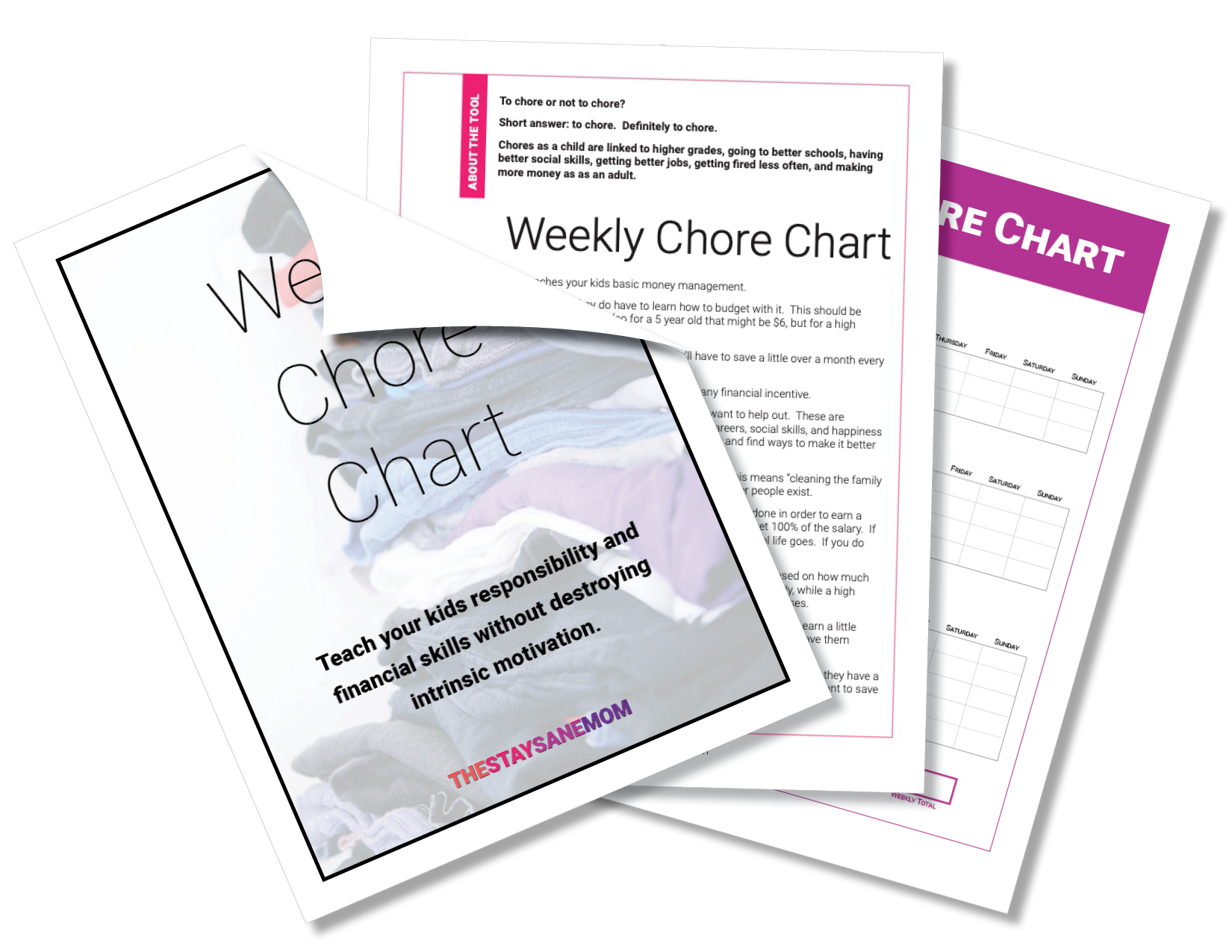Top 10 Non-Academic Things to Teach Your Kids

Top 10 Non-Academic Things to Teach Your Kids
This may not get them into Harvard, but it will be way more useful once they get out of whatever schooling they attend and enter this horrible place we call “the real world”.
Written by Liz Bayardelle, PhD | See Comments | Updated 09/10/2019
Want to cut to the chase?
Kids' Chore Chart

Top 10 Non-Academic Things to Teach Your Kids
This post contains some affiliate links for your convenience. Click here to read my full disclosure policy.
Many things go into being a wonderful parent.
You have all your janitorial tasks: the cooking, the cleaning, the chauffeuring to endless numbers of extracurricular activities, the list goes on. Then you have the things you need to actually teach that. Can you do homework with him every afternoon, you get the message glasses when the time comes, tutors along the way, and goodness knows how many private sports lessons for whatever Junior decided to do to get himself into college.
However, many of the things that are actually going to help them survive in the adult world aren't the things that we as parents focus the most attention on.
I would wager that that few people have ever been dumped or lost their job because they got a C in high school calculus. However, not showing the basic human courtesies or not being willing to do hard work can get you dumped and fired. Possibly in the same day.
So here lies my top 10 list of the non-academic behaviors we should communicate to our children. This may not get them into Harvard, but it will be way more useful once they get out of whatever schooling they attend and enter this horrible place we call “the real world”.
#1: Good Manners
This is a given, but lots of parents struggle with good manners themselves, so teaching their offspring how to behave rationally and nicely can be quite the task for them, too. If you want your child to grow up with the right attitude, then you have to make them that way. If they’re allowed to get away with being a certain way, then they’ll do it for the rest of their lives without realizing it’s unacceptable.
This begins in the toddler years with the basic please and thank you lessons, but it has much less obvious extensions as kids grow older. This includes things like noticing when other people do them favors or go out of their way to do something for them. It includes not asking for favors that you would not be willing to repay. It includes the ability to say no to people and defend your own boundaries without being aggressive or defensive. And yes, it includes opening doors for people regardless of gender.
Many facets that go into having good manners, but unless your child sees you demonstrate them time and time again they could go without some of these key skills.
#2: Act with Dignity and Compassion
They’ll copy absolutely everything you do – especially when they’re very young and are in need of that guide to show they everything. If you go around acting like a confident and competent individual, then they’ll mirror that kind of behavior. If you’re a nervous wreck that acts miserable to every situation, then they’re going to follow suit.
Dignity and compassion are actually two quite different skill-sets, but I lump them together in one list item here because they're both things that kids need to see you demonstrate over and over again. This includes things like how are you treat strangers who inconvenience you in the grocery store, the people who give you food at the drive-in window, and yes, that jerk that just cut you off in rush hour traffic. The pairs of eyes in the backseat see everything.
To maximize your positive impact on your kids on this front, make sure you have a good balance between defending your personal boundaries and not impinging upon those of others. If you can ensure no one takes advantage of you, but still managed to treat every human being as if they are actually a human being, your kids are going to turn out just fine.
#3: Prepare for the Future
There are certain yucky adult tasks that everyone hates.
Among these are bill paying, taxes, estate planning, and vacuuming under the refrigerator from time to time. You always tell kids to eat their vegetables. You tell them to do the hardest piece of homework first. You make sure that they get the yucky things out of the way so that they can have fun later.
Unfortunately, parenting also means you have to put your money where your mouth is.
Show your kids the process of paying their bills on time every month. Plan your estate and make sure your kids know an age-appropriate amount of what would happen in that horrible worst case scenario (no one wants to deal with a solicitor for contentious probate or other legal issues in a horrible situation).
It may not be any but make sure your kids see you doing all the boring, painful, annoying adult tasks so that they know they're not the only ones who have to eat their metaphorical veggies first.
#4: Good Habits
Another thing that is easier absorbed when you're tipsy modeling it is good habits.
I'll cover some specific types of habits below, ones that merit their own section, but here I'm just talking about the basics. Brush your teeth at least twice a day and make sure your kids know that it happens. If they're little, you can make a thing of brushing together. Take regular showers and make sure your appearance is always neat. You don't have to look like a supermodel, but your hair should be brushed to the same standard you require of them to go to school or in public.
Don't wear your pajamas in public. Make an effort to go to bed at a reasonable hour most nights, and don't be a pain in the neck when you're tired.
The more your kids see you modeling these horrible, annoying, incredibly essential habits, the better they will internalize them and incorporate them into their newly forming personalities so that they become instinctive by the time your kids are out on their own.
#5: Financial Good Sense
I really can't stress this one enough.
There is no such thing as too early to start drilling financial sense into your kids. The sooner your toddler learns that the items they paid for in the grocery store have a monetary value that directly correlates the amount of work one of their parents has to do, the better prepared they will be for life.
The best way to do this is by getting them on some kind of system where they must earn money with their own labor to buy some of the things that they want. As my dad is fond of saying, when money is unlimited everything is free.
Start by designing a chore chart for your kids. You can really start this as soon as they are old enough to understand the concept of numbers.
The sooner they start learning about Concepts like saving, earning, and the fact that when they spend money they no longer have it (a concept which is by no means instinctive, no matter how simple it seems) the better off they will be when it becomes time to bring in their own paycheck.
#6: Basic Home Maintenance
I'm not telling you to get fancy with this one. They don’t need flashcards for the different types of wrenches or drill bits.
However, kids should have a basic sense of how to fix the things that depend on on a daily basis.
Again, this one is best accomplished being modeling. It's actually quite simple. Any time something breaks in the house, have them help you fix it. Even if they just watch and hand you tools, you will be raising kids that are not freaked out by the idea of grabbing a hammer and fixing something themselves.
My toddler loves nothing more than when I have to patch a hole in a wall, because she thinks that spackle and wall putty are way more fun than Play-Doh.
By allowing your kids to participate in the basic Home Maintenance tasks you're doing anyway, you'll be teaching them valuable lessons about doing things for themselves, taking care of their environments, and a little bit of handyman competence on top of it all.
#7: Basic Cooking
Let me preface this one by saying it has taken me half a decade of marriage to become a passable chef.
I have never poisoned my family, but it is an immense point of Pride that I am able to say that.
I have clawed and fought and Googled my way to whatever meager culinary competence I possess.
However, I firmly believe that no child should be released into the wild (or college) without some basic kitchen skills in their repertoire. This can start with things as simple as making stovetop macaroni and cheese, knowing what will combust if placed in a microwave, and understanding the concept of expiration dates.
If you want to get fancy with it, that’s great and more power to you. If your four-year-old can cook French meals I can't pronounce I will be the first one to give you a high-five over the internet.
However, if you, like me look forward to pasta night because there are so few ways of messing up pasta, have no fear. You can still raise confident kids in the kitchen. Again, just make sure they help out when you cook the things you are able to cook and that you explain what's going into the process.
#8: Basic Fitness Habits
This one is more and more important as kids as a whole become increasingly sedentary.
Since Fortnite has replaced going to the park and cell phones have replaced playing ball in the street, it is our job as parents to make sure our kids understand the basic principles of being active and, more importantly, internalize the idea that being active is actually fun.
Make sure your kids understand the concept that food makes them get bigger and exercise makes them get smaller. I was literally a freshman in high school before I understood this concept. Many kids have crazy fast metabolisms and can eat whatever they want, so this lesson isn't his instinctive as we might hope.
Next, make sure they have examples of fun ways to stay active. You're constantly harassing them to go jogging with you and that really isn't there saying, they will grow up thinking that exercise is a chore. However, if you use a game of catch in the backyard as a carrot for when they finish their homework, use a family hike on the weekends as a reward for a great test grade, or any number of other actually fun activities they can do, they will start to internalize the idea that exercise is fun.
Are more than being forced to eat salads and lift weights, the ideas that exercising is fun and healthy food can actually taste good are the ones that will help them most as adults.
#9: How to Help Without Compensation
This one actually has empirical ties to a kids level of success as an adult.
Yes, you may get a good job because you got good grades, went to a great school, or have an impressive resume. However, you will keep your job because you are the one who sees that extra task that needs doing and does it without being asked.
Many parents find success in a task and reward type of ecosystem. Kids do good things and make it rewarded, bad things and they get punished. This is logical. However, you aren't always going to get a reward for doing the right or beneficial saying, and you will not always get caught or punished for doing the wrong one.
Kids need to learn that they should do good things, help out, and be productive members of their environment even if there's nothing in it for them. Again, this is a task best modeled, but you should also reinforce it verbally because it is a sneaky and difficult concept to learn. Kids need lots of repetition, but they are perfectly capable of getting the picture, no matter what their actions suggest it first.
#10: How to See Things from Another Person’s Perspective
I end with this most important lesson.
One of the most important skills in life is seeing things from another person's perspective. Whether it's a boss, a significant other, a co-worker, or someone else they're forced to interact with, your kid is not going to exist in a vacuum. They will have to interface with and cooperate with other people.
Which is only ever have to see things from their point of the they lose out on a huge portion of the skills that they will need as an adult. They need to understand that people's bad days happen for their own reasons, not because you necessarily did something wrong. they need to see you that other people's lives are harder (or easier) and their own and act accordingly. They need to understand that people come from different backgrounds and act in different ways, and that's not necessarily a bad thing.
This is one of the most difficult lessons to teach, but one of the most important ones for them to learn.
As always, repetition, good discussion, and modeling will be key to get this one across.
One Final Caveat
One quick note here: you can only say so much before someone will nod off and stop heeding your advice. Theoretical and figurative teachings only get you so far. You have to show your kids how to behave by doing it yourself.
You can have all of the knowledge in the world, but there’s nothing quite like actual experience. Teaching them these kinds of lessons by example may take a little patience, but they’ll absorb and internalize much more of what you do than what you say.
Start Your Next Step
Kids' Chore Chart

Get Sanity, Delivered to Your Inbox.
Care to Share?
About the Author

Liz Bayardelle, PhD
Founder | Contributor
Liz (or Dr. Mommy, as her toddler started calling her after learning what a PhD was) is the happily sleep-deprived mom of a toddler (and professional raccoon noise impersonator), a sparkle-clad kidnado, a teenage stepdaughter, 200 cumulative pounds of dog, and herd of dustbunnies (if daily vacuuming doesn't occur). During nights and naptimes, she uses her PhD in business psychology as an author, speaker, and consultant. She also serves as an executive and principal for three companies, two of which she co-founded with her very patient (and equally exhausted) husband.





-Budget.jpg)